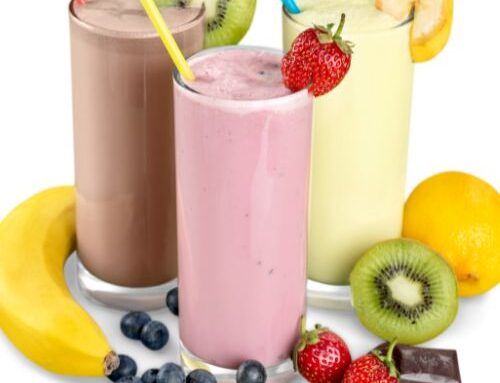The Link Between Nutrition and Mental Health: Foods that Improve Mood
In the hustle and bustle of daily life, it’s easy to overlook the profound impact that our diet can have on our mental well-being. While it’s no secret that nutrition plays a crucial role in our physical health, emerging research suggests a strong connection between what we eat and our mental health. In fact, certain foods have been found to possess mood-boosting properties, capable of improving our emotional state and overall mental well-being. Join us as we delve into the fascinating world of nutritional psychiatry and explore the foods that have been scientifically proven to enhance mood.
The Gut-Brain Connection
To understand the link between nutrition and mental health, we must first acknowledge the intricate relationship between our gut and brain. The gut-brain axis serves as a bi-directional communication pathway, allowing the two systems to exchange vital information. This connection is primarily mediated by the gut microbiota, a complex community of microorganisms residing in our intestines. Research has revealed that these tiny inhabitants play a pivotal role in modulating brain chemistry and influencing our mental state.
Serotonin and Dopamine: The Mood-Boosting Messengers
Serotonin and dopamine are neurotransmitters known for their significant roles in regulating mood and emotions. Interestingly, these chemical messengers are influenced by the foods we consume. For instance, serotonin, often referred to as the “feel-good hormone,” can be increased by consuming foods rich in tryptophan, such as turkey, eggs, and nuts. Similarly, dopamine production can be supported through the consumption of foods like bananas, avocados, and dark chocolate.
Nutrients for Nurturing a Healthy Mind
A balanced and varied diet can provide the essential nutrients required for optimal brain function. Omega-3 fatty acids, found in fatty fish, walnuts, and flaxseeds, have been linked to reduced symptoms of depression and anxiety. Vitamin D, obtained from sunlight exposure and fortified foods, is crucial for brain health and can help regulate mood. B vitamins, including folate and vitamin B12, found in leafy greens, legumes, and lean meats, support neurotransmitter production and mental well-being. Antioxidants, present in colorful fruits and vegetables, protect the brain from oxidative stress and inflammation.
Gut-Friendly Foods for a Happy Mind
Our gut microbiota plays a pivotal role in mental health, and nourishing it with the right foods can contribute to a happier mind. Probiotic-rich foods, such as yogurt, sauerkraut, and kefir, provide beneficial bacteria that promote healthy gut flora. Fiber, abundant in whole grains, fruits, and vegetables, acts as a prebiotic, fueling the growth of good bacteria. Maintaining a diverse and balanced gut microbiome is essential for mental well-being.
Mindful Eating and Mental Well-being
In addition to incorporating mood-boosting foods into our diet, practicing mindful eating can further enhance our mental well-being. Taking the time to savor and appreciate each bite can heighten our enjoyment of food, leading to a more positive mood. Additionally, mindful eating promotes a healthier relationship with food and can help prevent emotional eating, which is often associated with mood swings and negative emotions.
Conclusion
As we’ve explored the link between nutrition and mental health, it’s clear that the food we consume plays a vital role in shaping our mood and overall mental well-being. By incorporating foods rich in essential nutrients, supporting a healthy gut microbiome, and practicing mindful eating, we can optimize our mental health and nurture a positive outlook on life. Let us remember that a well-nourished body is not only a reflection of physical health but also a key factor in achieving a happy mind.




